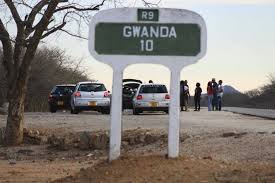A Peace Building Committee set up by Churches Convergence on Peace (CCOP) says it has recorded success in Gwanda, where its intervention and mediation in the mining town has resulted in the reduction of violence cases among artisanal miners.
Speaking at a CCOP Conference recently, Matabeleland South Peace Committee Chairperson, Phathisiwe Dube, said her team had done “commendable” work to address conflict between miners and the police.
“In Ward 5, Gwanda, the situation was dire,” she said.
“The miners were not only fighting over mines, but they had been divided along tribal lines. There was a group from Matabeleland side and another from Mashonaland fighting over dominance and lot of people were killed during the squabbles. ”
Dube said miners decried that the police were not helpful as they often claimed they were incapacitated to deal with their squabbles.
She said the artisanal miners complained that police also demanded bribes before attending to mining conflicts and would only help them after someone was injured in an assault.
“There are shops close to the mines in Ward 5, where the miners go for drinking sprees and when they are drunk, they start fighting,” explained Dube.
“The police told us the violence becomes too intense and at times it would be dangerous for them to intervene. There was also no proper police base in the area hence they were concerned about their own safety. We thus engaged both parties and encouraged them to map a way forward.”
She added: “After several occasions of mediation, dialogues and negotiations, we reached a consensus. The situation calmed down. At the moment the community is raising funds to build a police base within the area which will serve the people.”
Peace Committee Chairperson for Matabeleland North, Siyaphambili Moyo noted that the main issues affecting people in the region centred around Gukurahundi.
Moyo said many people in Lupane and Tsholotsho were affected by the past disturbances and most still faced difficulties in acquiring legal documentation.
He noted they worked closely with the Zimbabwe Human Rights Commission and after several engagements, a substantive number of people managed to access birth certificates.
“Deliberations from a number of meetings resulted in the people accessing the documentation they needed. We also managed to pull together various stakeholders including members of political parties to work together and address issues affecting people,” Moyo added.

